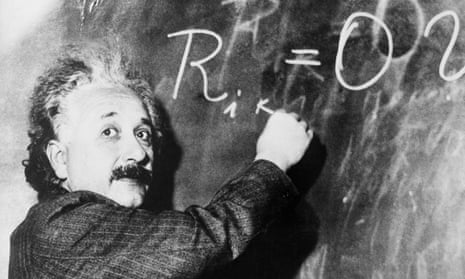Chinese internet users have defended Albert Einstein’s recently published travel diaries in which the physicist calls the Chinese “industrious, filthy people.”
Portions of the diaries from his travels in Asia in the 1920s were posted online this week and their content surprised Einstein fans.
“Chinese don’t sit on benches while eating but squat like Europeans do when they relieve themselves out in the leafy woods,” he wrote.
“All this occurs quietly and demurely. Even the children are spiritless and look obtuse.”
The theoretical physicist, who once said racism was “a disease of white people”, added: “It would be a pity if these Chinese supplant all other races. For the likes of us the mere thought is unspeakably dreary.”
While some internet users called for a “boycott of Einstein” and said his observations proved “all humans, even Einstein, have a stupid, shallow side,” most said the China Einstein witnessed is nothing like it is today.
“Einstein went to China at the wrong time,” said one Weibo user, describing the early years of the Chinese republic, established in 1912, which came after centuries of imperial rule. “Hunger, war, and poverty all pressed on the Chinese. How could Chinese people at the time gain Einstein’s respect?”
Many were in strong support of the scientist: “This is called insulting China? That’s ridiculous. Did the Chinese in that era look dirty? When I see the photos from then, they look dirty, Einstein depicted the true state of that era.”
Others compared the scientists’s observations to that of Lu Xun, considered the father of modern Chinese literature, who was best known for his scathing satire of Chinese society in the early 20th century. “We praise Lu Xun because he pointed out our disadvantages. Why should we blame Einstein for this?”
Historical narratives promoted by the Chinese government often paint the days before China’s communist party took power in 1949 as chaotic.
The state-run Global Times published an editorial on Friday praising the level-headed response of Chinese internet users. The author, who goes by the pen name Gengzhige, wrote: “I’m curious what Einstein would write now if he saw the open attitudes most Chinese show today toward his private diary.”
The editorial elicited over 2,000 comments. One of the most liked responses said: “Dignity is earned by oneself, not given by others.”
But there were some dissenting voices amongst the comments: “This is just racism. We can see that Einstein is strong in physics but he doesn’t understand humans at all.”
